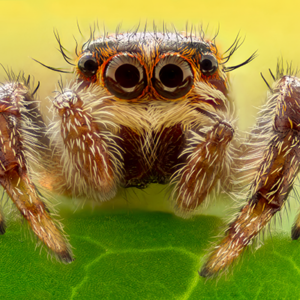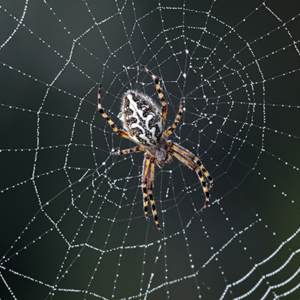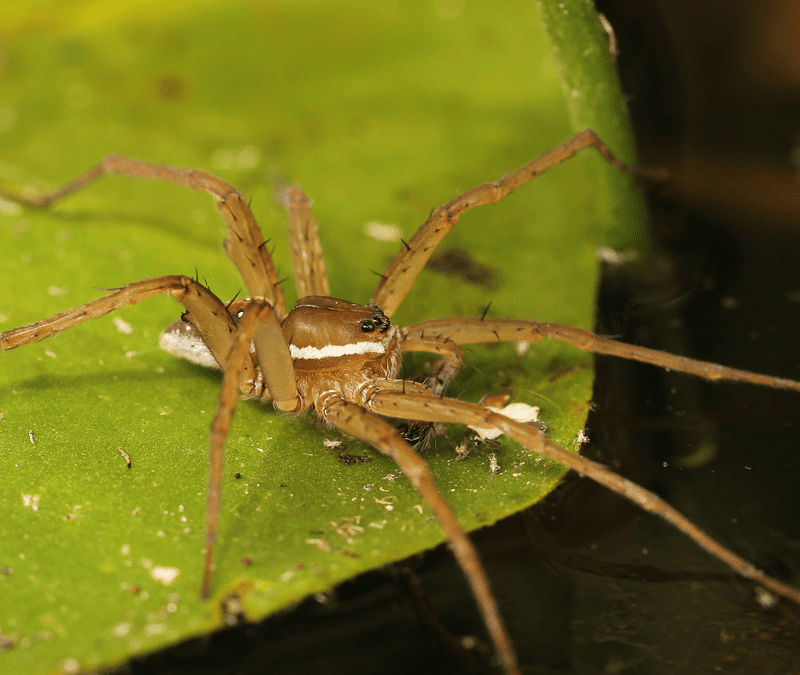- America's #1 lawn care company.
- 225-752-7252
8 Things You Never Knew About Spiders

8 Things You Didn’t Know You Could Make With Dandelions
April 26, 2021
Why Mosquitoes Need Blood And Other Things You’ve Wondered About Them
May 24, 2021Most people don’t enjoy the sight of a spider, and we can’t blame them. From their creepy appearance to their painful bites, there’s a reason TruGreen uses targeted pest control to keep these critters out. That being said, they are still one of nature’s most fascinating creatures. You might even be jealous of their abilities once you know a little more. Check out these neat facts about spiders.
10 Interesting Facts About Spiders
1. Some Female Spiders Eat Their Mates
The black widow is the most famous example of this. Scientists believe that male black widows will willingly sacrifice themselves to be chosen as a mate by the female. It sounds strange to us humans, but many male spiders spend their brief life searching for a mate without success. Therefore, when they do come across a female, they must do everything they can to ensure she chooses them. And in fact, this odd practice is where the name “black widow” spider comes from. There are also brown and red widow spiders too!
2. Spiders Have Excellent Vision
Not only do spiders come equipped with eight ours compared to our measly two, but some species can also even see UVA and UVB light. Male jumping spiders can not only see in these spectrums; they have specialized reflectors on their backs to bounce this special light around and attract females. It kind of makes you envious. These tiny spiders get more out of that high-def TV than you do!
3. Brown Recluse Females Only Need To Mate Once
Unlike most other species, female brown recluse spiders only need to mate once, and they will continue producing eggs from that coupling for the rest of their life. She’ll lay about 150 eggs per year. As you probably know, the bite of a brown recluse is excruciating and should always be treated by a medical professional. Due to their shy and avoidant nature, they are more afraid of you than you are of them. They will likely scurry away at the first sign of disturbance. Unfortunately, one of the most common ways these spiders travel is by hitchhiking in larger boxes, like furniture boxes. Once a place is infested with recluses, they can be difficult to control. Always be sure to double-check boxes when moving or ordering larger items to be delivered to your home.
4. Tarantulas Can Fling Hair At You
Sometimes, predators don’t get the message, and when that happens, some tarantulas have the ability to kick their defense into overdrive. They do so by flinging their hair. Scientists refer to this hair as “urticating hairs.” In the same way that stinging nettle plants or porcupines will use barbed hairs to harm potential predators, a tarantula will rub its body hair against something or someone it perceives as a threat.
5. Some Spiders Can Fish
Humans aren’t the only creatures to use a net to catch a meal. The net-casting spider, also known as the ogre-faced spider, uses its silk to weave a small net which it holds in its two front legs. It then lies in wait, and when a potential meal comes along, it uses the net to scoop it up – just as a human might use a net for fishing! As if spiders weren’t creepy enough – some of them have developed tools! But don’t worry – ogre-faced spiders are only found in Australia.
6. Spiders Are Older Than Dinosaurs
Spiders, as we know them today, first evolved from arachnid ancestors some 300 million years ago. Hundreds of millions of years before t-rex roamed the earth! And these earliest spiders had tails.
7. Spiders Are Tightrope Walkers
Spiders’ feet are equipped with tiny specialized hairs that allow them to walk along the silk lines as they weave their web – without getting stuck in it! Not every part of the web is sticky, but these special hairs decrease their foot’s surface area, so there is less contact with the webbing.
8. Spider Silk Is Tougher Than Kevlar
While it’s not as strong as Kevlar, it has a higher toughness rating. Spider silk is comprised of proteins that are produced in different glands. The amino acids that build up those proteins are what determine the strength and elasticity of the strands.
Find Professional Pest Control Services Near New Orleans
TruGreen Midsouth is a full-service lawn care company offering residential and commercial pest control to metro regions across Louisiana and Mississippi, including New Orleans, Baton Rouge, Tupelo, and Oxford. Our pest control program will guard your property against spiders, beetles, centipedes, and more. We also offer flea and tick control to help you enjoy a pest-free outdoor space. To learn more, ask an expert!
For service in Louisiana, call: 225-465-0665 or check out our local Facebook page.
For service in Mississippi, call: 662-330-1330 or check out our local Facebook page.
Or you can leave us a message online anytime. If you’d like to learn more about landscaping, tree care, or best practices for lawn maintenance, be sure to visit our monthly blog page.




